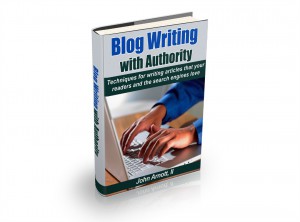 Thinking about launching a blog using WordPress? While this content management system (CMS) can be used to create all types of websites, it’s particularly effective at developing blogs. WordPress supports multiple authors, visitor comments, tags/categories, and you can schedule postings, all of which are helpful tools when blogging.
Thinking about launching a blog using WordPress? While this content management system (CMS) can be used to create all types of websites, it’s particularly effective at developing blogs. WordPress supports multiple authors, visitor comments, tags/categories, and you can schedule postings, all of which are helpful tools when blogging.
Define Your Niche
The very step in launching a WordPress is to define your blog. In other words, what do you want your blog to be about? Going broad with a generalized topic rarely works, simply because there’s too much competition for broad keywords. A smarter and more effective strategy is to focus on a narrow topic or niche. Ideally, you should choose a niche with plenty of searches but low competition. If you need help with your blog’s niche selection, use the Google Adwords’ Keyword Planner Tool to brainstorm ideas.
Hosted or Self-Hosted WordPress?
Do you plan on using the hosted or self-hosted version of WordPress? Many first-time bloggers choose the hosted version (found at WordPress.com) simply because it’s easier and doesn’t require a dedicated domain name or third-party web hosting service. However, opting for the self-hosted version (found at WordPress.org) allows for greater customization, making it the preferred choice by seasoned bloggers. If you are serious about creating a successful blog, it’s recommended that you choose the self-hosted version of WordPress. Yes, you’ll have to register a domain name and sign up for a third-party web hosting service, but the process is pretty simple and affordable.
Choose a Template
Whether you decide to use the hosted or self-hosted version of WordPress, you’ll need to choose a template (known as a theme) for your blog. There are literally tens of thousands of themes from which to choose, ranging in style, widget-compatibility and format. In the rare event that you are unable to find a theme that’s suited for your blog, you can always hire a professional coder or web design agency to custom create one for you. Be warned, though, hosted WordPress has significantly fewer themes available than its self-hosted counterpart.
Domain Name
Assuming you choose the self-hosted version WordPress (hint: you should!), you’ll need to register a domain name. This can make or break a new blog, so don’t underestimate the importance of choosing a relevant, easy-to-remember domain name. Some bloggers simply choose keyword-rich domain names, believing it will yield higher search rankings. It’s great if you can includ your target keyword in your blog’s domain, but it should contain other, more brandable words as well.
Download Plugins
What kind of plugins do you intend to use with your WordPress blog? While there’s no rule stating that you must use plugins, this is one of the many perks offered by WordPress. Plugins can save you time and create a better experience for readers. Check out the plugin directory here to browse through some of the most popular plugins.
Did we leave out any steps to launching a WordPress blog? Let us know in the comments section below!


I find the niche and domain name to be the most challenging components. That’s why it’s so critical to plan ahead. I advise creating an outline with what you want to accomplish through your blog.
Thanks so much for the plugin directory link. I’ve looked over it and found some useful ones.
Good checklist. I’m just getting my WordPress site started so the timing was impeccable on this post. I’m happy that you included the plugin directory as well.